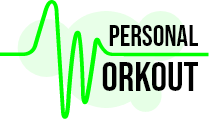Understanding Hypertension: Modern Science and Effective Management
High blood pressure (HBP), also known as hypertension, is one of the most prevalent chronic conditions worldwide, affecting over 1 billion people. It is a major risk factor for cardiovascular diseases, including heart attack, stroke, and heart failure. Despite its prevalence, hypertension is often referred to as the “silent killer” because it typically has no symptoms until it causes significant health issues. This blog post delves into the science behind high blood pressure, exploring recent studies to provide an up-to-date understanding of its causes, impacts, and management strategies. By André Pedro.
What is High Blood Pressure?
Blood pressure is the force exerted by circulating blood against the walls of the body’s arteries, the major blood vessels in the body. It is typically measured in millimeters of mercury (mmHg) and recorded as two numbers: systolic pressure (the pressure when the heart beats) over diastolic pressure (the pressure when the heart rests between beats). Normal blood pressure is considered to be around 120/80 mmHg.
Hypertension is diagnosed when blood pressure readings consistently exceed 130/80 mmHg, according to guidelines from the American College of Cardiology (ACC) and the American Heart Association (AHA) updated in 2017. Blood pressure readings are categorized as follows:
– Normal: Less than 120/80 mmHg;
– Elevated: Systolic between 120-129 and diastolic less than 80;
– Hypertension Stage 1: Systolic between 130-139 or diastolic between 80-89;
– Hypertension Stage 2: Systolic at least 140 or diastolic at least 90;
– Hypertensive Crisis: Systolic over 180 and/or diastolic over 120, which requires immediate medical attention;
The Global Burden of Hypertension
The global burden of hypertension is significant and growing. A study published in The Lancet in 2021 highlighted that the number of people living with hypertension has doubled over the past 30 years – in 2019, approximately 1.28 billion adults aged 30-79 were living with hypertension – with the largest increases seen in low- and middle-income countries (LMICs). This represents a significant increase from the 650 million adults with hypertension in 1990. This rise is attributed to lifestyle changes, urbanization, and aging populations. Hypertension is now responsible for a significant proportion of global morbidity and mortality, being a leading cause of premature death and disability-adjusted life years (DALYs).
Why should you care about this?
Hypertension is associated with several serious health problems that can affect various organs and systems in the body. These complications arise because persistently high blood pressure can damage blood vessels and strain the heart. Below are some of the primary problems associated with hypertension:
1. Cardiovascular Diseases
Heart Attack (Myocardial Infarction): Hypertension can lead to the thickening of the coronary arteries, reducing blood flow to the heart muscle and increasing the risk of a heart attack.
Heart Failure: The heart has to work harder to pump blood against the higher pressure in the vessels, which can lead to the thickening of the heart muscle (left ventricular hypertrophy) and eventually to heart failure, where the heart can’t pump blood efficiently.
Atherosclerosis: High blood pressure accelerates the process of atherosclerosis, where arteries become narrowed and hardened due to plaque buildup, increasing the risk of heart attack, stroke, and other cardiovascular diseases.
2. Stroke
Hypertension is the leading risk factor for stroke, particularly ischemic stroke, which occurs when blood flow to the brain is blocked. High blood pressure can cause the arteries in the brain to either burst (hemorrhagic stroke) or become clogged, leading to a stroke.
3. Kidney Damage (Chronic Kidney Disease)
The kidneys filter blood and remove waste products. High blood pressure can damage the blood vessels in the kidneys, reducing their ability to function properly, leading to chronic kidney disease (CKD) or even kidney failure, requiring dialysis or a kidney transplant.
4. Vision Loss
Hypertension can damage the tiny blood vessels in the eyes, leading to hypertensive retinopathy. This can result in blurred vision or complete loss of vision if the condition progresses.
5. Aneurysm
High blood pressure can cause blood vessels to weaken and bulge, forming an aneurysm. Aneurysms can occur in any blood vessel but are most dangerous when they occur in the brain or the aorta, as they can burst and cause life-threatening internal bleeding.
6. Cognitive Impairment and Dementia
Hypertension is associated with cognitive decline and an increased risk of dementia, including Alzheimer’s disease. This is believed to be due to the chronic damage high blood pressure causes to the blood vessels in the brain, reducing blood flow and leading to brain cell damage.
7. Peripheral Artery Disease (PAD)
Hypertension contributes to the narrowing of arteries in the limbs, particularly the legs, leading to reduced blood flow. This can cause pain when walking, and in severe cases, it can lead to gangrene and the need for amputation.
8. Sexual Dysfunction
High blood pressure can lead to sexual dysfunction in both men and women. In men, it can cause erectile dysfunction by reducing blood flow to the penis. In women, it can reduce blood flow to the sexual organs, leading to a decrease in libido or arousal.
9. Bone Loss (Osteoporosis)
Hypertension can increase the excretion of calcium in the urine, which may contribute to bone loss and an increased risk of fractures, particularly in older women.
10. Metabolic Syndrome
Hypertension is often a component of metabolic syndrome, a cluster of conditions including obesity, high blood sugar, and abnormal cholesterol levels. This syndrome increases the risk of heart disease, stroke, and type 2 diabetes.
Causes and Risk Factors
Genetic Factors
Recent studies suggest that genetic predisposition plays a significant role in the development of hypertension. Genome-wide association studies (GWAS) have identified numerous genetic loci associated with blood pressure regulation. For instance, a large GWAS meta-analysis published in Nature Genetics in 2022 identified over 500 genetic variants associated with blood pressure, shedding light on the complex genetic architecture of hypertension. These variants are involved in various biological pathways, including renal sodium handling, vascular tone, and hormone regulation, all of which are crucial in blood pressure control.
Lifestyle Factors
Diet: One of the most significant contributors to hypertension is diet, particularly high sodium intake. The relationship between sodium and blood pressure has been well-established, with excessive sodium consumption leading to increased blood volume and vascular resistance. A 2013 study emphasized the importance of reducing sodium intake as a means of lowering blood pressure and preventing hypertension – even at a modest reduction.
Obesity: Obesity is another major risk factor for hypertension. The mechanisms linking obesity and hypertension are multifaceted, involving insulin resistance, increased sympathetic nervous system activity, and altered adipokine levels. A study in Hypertension (2020) highlighted that weight loss, particularly through lifestyle interventions like diet and exercise, can significantly reduce blood pressure levels.
Physical Activity: As seen, weight loss is beneficial for reducing blood pressure, and physical activity plays a crucial role in achieving and maintaining a healthy weight. Regular physical activity not only supports weight management but also improves vascular function and reduces systemic inflammation, which are key factors in managing hypertension. The 2020 Physical Activity Guidelines Advisory Committee Scientific Report highlighted that moderate to vigorous physical activity can lower systolic and diastolic blood pressure by an average of 4 to 9 mmHg, underscoring its importance in hypertension management.
Alcohol and Tobacco Use: Both excessive alcohol consumption and smoking are significant risk factors for hypertension. Alcohol has a dose-dependent effect on blood pressure, with heavy drinking leading to sustained increases. Smoking, on the other hand, causes acute spikes in blood pressure and contributes to long-term vascular damage, further exacerbating hypertension risk.
Psychosocial Factors
Emerging evidence points to the role of psychosocial stress in the development of hypertension. Chronic stress can lead to sustained elevations in blood pressure through increased sympathetic nervous system activity and cortisol release. Additionally, stress often leads to unhealthy behaviors, such as poor diet, physical inactivity, and substance abuse, which further contribute to hypertension. A 2021 study in Circulation found that individuals with higher levels of perceived stress had a significantly higher risk of developing hypertension over a 10-year follow-up period.
The Pathophysiology of Hypertension
Understanding the pathophysiological mechanisms underlying hypertension is crucial for developing effective treatments. Hypertension results from a complex interplay of factors that affect the cardiovascular system, including:
Vascular Resistance
One of the primary mechanisms of hypertension is increased vascular resistance. This can be due to various factors, such as endothelial dysfunction, which leads to impaired nitric oxide production—a crucial vasodilator. Reduced nitric oxide availability results in vasoconstriction, which increases resistance in the arteries and raises blood pressure. A 2020 study published in *Hypertension* explored the role of endothelial dysfunction in hypertension and highlighted potential therapeutic targets, such as enhancing nitric oxide bioavailability.
Renin-Angiotensin-Aldosterone System (RAAS)
The RAAS plays a central role in blood pressure regulation by controlling blood volume and systemic vascular resistance. Dysregulation of the RAAS, characterized by overactivation of angiotensin II (a potent vasoconstrictor) and aldosterone (which promotes sodium retention), is a key driver of hypertension. Recent studies have focused on the role of RAAS inhibitors, such as angiotensin-converting enzyme (ACE) inhibitors and angiotensin II receptor blockers (ARBs), in managing hypertension. These medications are among the most effective treatments for reducing blood pressure and preventing cardiovascular events.
Sympathetic Nervous System (SNS) Activity
The SNS regulates heart rate and vascular tone, both of which influence blood pressure. Chronic activation of the SNS leads to sustained increases in heart rate and vasoconstriction, contributing to the development of hypertension. A 2021 study in The Journal of Clinical Hypertension found that targeting SNS activity through lifestyle interventions (e.g., stress reduction techniques) and pharmacological agents (e.g., beta-blockers) can effectively lower blood pressure in hypertensive patients.
Recent Advances in Hypertension Research
The past five years have seen significant advancements in hypertension research, particularly in understanding its genetic basis, developing novel therapeutics, and improving management strategies.
1. Precision Medicine in Hypertension
The concept of precision medicine—tailoring treatment based on an individual’s genetic makeup, environment, and lifestyle—has gained traction in hypertension management. Advances in genetic research have identified specific genetic variants that influence blood pressure response to different antihypertensive drugs. For example, a 2020 study in The Lancet highlighted that patients with certain genetic profiles responded better to calcium channel blockers, while others had a more significant response to thiazide diuretics. This approach could lead to more personalized and effective treatment strategies for hypertension.
2. New Antihypertensive Agents
Research into new antihypertensive agents continues to evolve. One promising area is the development of drugs that target the gut microbiome, which has been implicated in blood pressure regulation. A 2019 study in Nature Medicine found that certain gut bacteria produce metabolites that can lower blood pressure, suggesting that modulating the gut microbiome could be a novel therapeutic strategy for hypertension. Additionally, recent studies have explored the potential of gene therapy for hypertension. A 2021 review in Nature Reviews Cardiology discussed the use of RNA interference (RNAi) technologies to silence specific genes involved in blood pressure regulation, offering a potential new approach for treating resistant hypertension.
3. Telemedicine and Remote Monitoring
The COVID-19 pandemic has accelerated the adoption of telemedicine and remote monitoring for hypertension management. These technologies allow patients to monitor their blood pressure at home and share data with healthcare providers in real time. A 2021 study in *JAMA Network Open* found that telemedicine interventions, including remote monitoring and virtual consultations, were associated with significant reductions in blood pressure compared to usual care. This approach offers a convenient and effective way to manage hypertension, particularly for patients in remote or underserved areas.
Managing Hypertension: Evidence-Based Strategies
Effective management of hypertension involves a combination of lifestyle modifications and pharmacological interventions. The following strategies are supported by recent evidence:
1. Lifestyle Modifications
Dietary Approaches to Stop Hypertension (DASH) Diet: The DASH diet, rich in fruits, vegetables, whole grains, and low-fat dairy, has been shown to significantly reduce blood pressure. A 2020 meta-analysis in The American Journal of Clinical Nutrition confirmed that adherence to the DASH diet lowers systolic and diastolic blood pressure by an average of 5.5 and 3.0 mmHg, respectively.
Physical Activity: Regular aerobic exercise, such as brisk walking, swimming, or cycling, is recommended for lowering blood pressure. The 2020 Physical Activity Guidelines Advisory Committee Report emphasized that moderate to vigorous physical activity can lower systolic and diastolic blood pressure by 4 to 9 mmHg, making it a cornerstone of hypertension management.
Weight Management: Achieving and maintaining a healthy weight is crucial for controlling blood pressure. Even modest weight loss (5-10% of body weight) can lead to significant reductions in blood pressure. A 2021 study in *The Lancet Diabetes & Endocrinology* highlighted that weight loss interventions, including dietary changes and increased physical activity, can reduce systolic blood pressure by up to 10 mmHg in overweight and obese individuals.
Reducing Sodium Intake: High sodium intake is directly linked to elevated blood pressure. The AHA recommends limiting sodium intake to less than 2,300 mg per day, with an ideal limit of 1,500 mg for most adults. A 2019 study published in The New England Journal of Medicine found that reducing sodium intake led to significant decreases in blood pressure, particularly in individuals with hypertension.
Limiting Alcohol Consumption: Excessive alcohol consumption can raise blood pressure and negate the effects of antihypertensive medications. The 2020 Dietary Guidelines for Americans recommend that men limit alcohol to two drinks per day and women to one drink per day to reduce hypertension risk.
Stress Management: Chronic stress contributes to sustained high blood pressure. Techniques such as mindfulness, meditation, and yoga have been shown to reduce stress and lower blood pressure. A 2021 study in *Circulation* demonstrated that individuals who engaged in regular stress reduction practices had a lower risk of developing hypertension.
2. Pharmacological Interventions
When lifestyle modifications alone are insufficient to control blood pressure, pharmacological treatment is necessary. The choice of medication depends on the patient’s overall health, the severity of hypertension, and the presence of comorbidities.
Diuretics: Often the first line of treatment, diuretics help the kidneys eliminate excess sodium and water, thereby reducing blood volume and lowering blood pressure. Thiazide diuretics are the most commonly prescribed class and have been shown to be effective in reducing cardiovascular events.
Angiotensin-Converting Enzyme (ACE) Inhibitors: ACE inhibitors block the production of angiotensin II, a hormone that causes blood vessels to constrict. By preventing this constriction, ACE inhibitors lower blood pressure and reduce the workload on the heart. They are particularly effective in patients with diabetes or chronic kidney disease.
Angiotensin II Receptor Blockers (ARBs): Similar to ACE inhibitors, ARBs prevent angiotensin II from binding to its receptors on blood vessels, thus preventing vasoconstriction. ARBs are an alternative for patients who cannot tolerate ACE inhibitors.
Calcium Channel Blockers: These medications prevent calcium from entering the smooth muscle cells of the heart and blood vessels, leading to relaxation and dilation of the arteries. Calcium channel blockers are especially effective in treating hypertension in older adults and those of African descent.
Beta-Blockers: Beta-blockers reduce blood pressure by slowing the heart rate and decreasing the force of heart contractions. While they are no longer the first-line treatment for hypertension, they are useful in patients with specific conditions, such as heart failure or a history of myocardial infarction.
Newer Antihypertensive Agents: Advances in pharmacology have led to the development of novel antihypertensive drugs, such as those targeting the gut microbiome or utilizing gene therapy approaches. These emerging treatments hold promise, especially for patients with resistant hypertension.
3. Monitoring and Follow-Up
Regular monitoring of blood pressure is essential for managing hypertension effectively. Home blood pressure monitors allow patients to track their readings outside the clinical setting, providing valuable data for healthcare providers. A 2021 study in JAMA Network Open found that patients who used home monitoring devices in conjunction with telemedicine support achieved better blood pressure control than those who received usual care.
Conclusion
High blood pressure remains a major global health challenge, contributing significantly to the burden of cardiovascular disease. However, the past few years have seen remarkable advances in our understanding of hypertension’s genetic basis, pathophysiology, and management strategies. Through a combination of lifestyle modifications, pharmacological interventions, and regular monitoring, hypertension can be effectively controlled, reducing the risk of complications and improving quality of life.
Ongoing research and innovations in precision medicine, novel therapeutics, and telemedicine will likely continue to enhance our ability to manage hypertension more effectively. By staying informed and adopting evidence-based practices, individuals can take proactive steps to prevent and manage high blood pressure, leading to healthier outcomes.
SOURCES
- https://www.thelancet.com/journals/lancet/article/PIIS0140-6736(21)01688-3/abstract
- https://www.who.int/news-room/fact-sheets/detail/hypertension
- https://www.nature.com/articles/s41598-024-68751-7
- https://pubmed.ncbi.nlm.nih.gov/36407459/
- https://www.escardio.org/Journals/E-Journal-of-Cardiology-Practice/Volume-22/salt-and-hypertension-current-views
- https://www.ncbi.nlm.nih.gov/pmc/articles/PMC8811286/
- https://www.ahajournals.org/doi/10.1161/CIR.0000000000001146
- https://www.ncbi.nlm.nih.gov/pmc/articles/PMC9319619/
- https://www.nature.com/articles/s41581-022-00654-0
- https://www.ahajournals.org/doi/10.1161/HYPERTENSIONAHA.121.17209
- https://www.ncbi.nlm.nih.gov/pmc/articles/PMC10815916/
- https://www.mayoclinic.org/healthy-lifestyle/nutrition-and-healthy-eating/in-depth/dash-diet/art-20048456
Challenge of the Month
What Clients Say





















